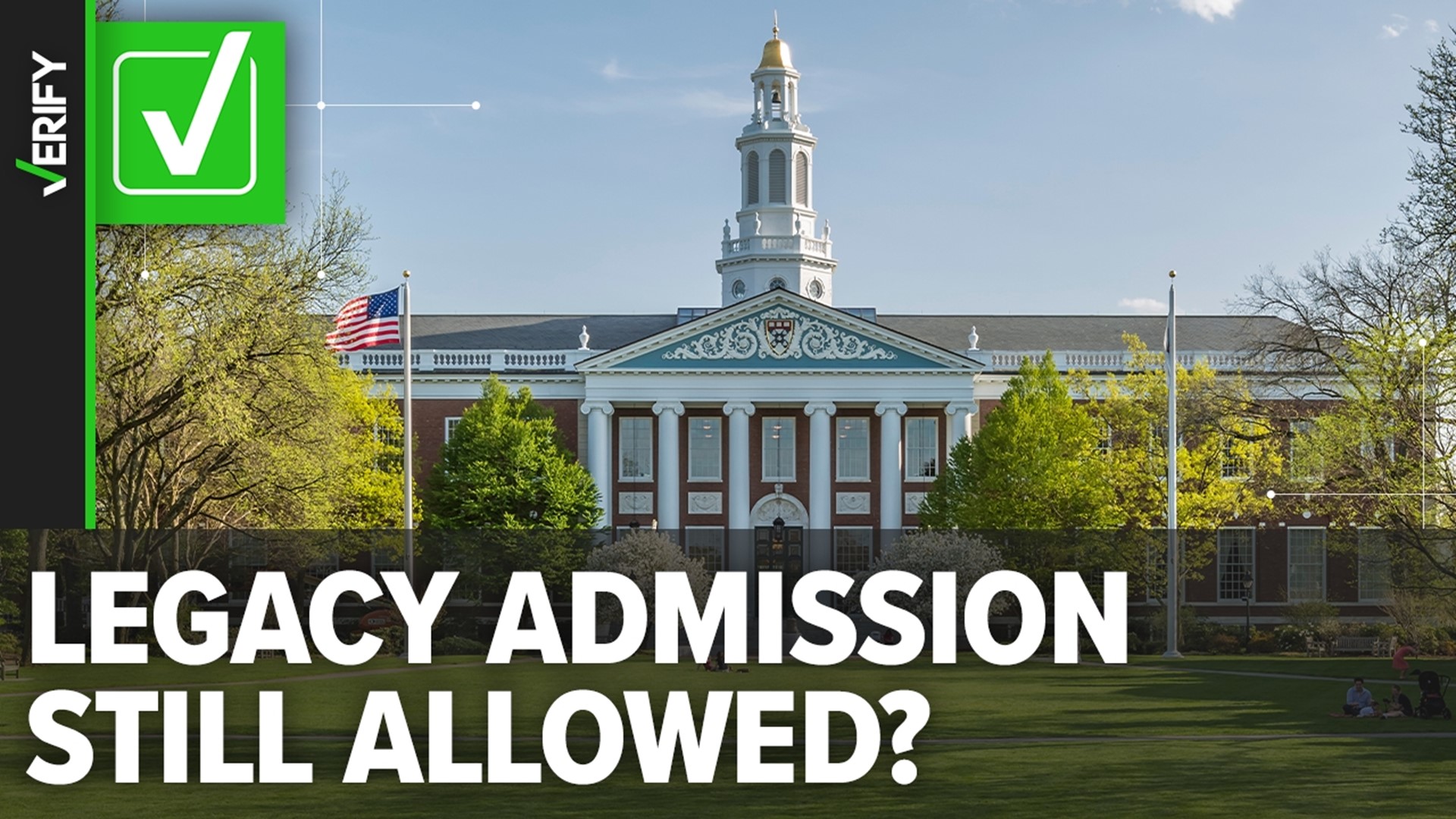The Supreme Court on Thursday, June 29 struck down certain affirmative action practices in higher education, banning the consideration of race as a factor in college admissions.
The decision has sparked conversation online about college admissions practices in general, including the controversial topic of legacy preference – when admission offices prioritize applicants whose family members attended the school.
“Let me get this straight. SCOTUS says colleges can’t take race into consideration during admission…But they can give preference to ‘legacies,’” professor and former Secretary of Labor Robert Reich wrote in a viral tweet.
Other people on social media have also claimed that the Supreme Court decision still allows legacy college admissions.
THE QUESTION
Are legacy college admissions still allowed following the Supreme Court’s ruling?
THE SOURCES
- Supreme Court ruling in Students for Fair Admissions, Inc. v. President and Fellows of Harvard College and Students for Fair Admissions, Inc. v. University of North Carolina
- Benjamin Barton, J.D., Charles Lockett Distinguished Professor of Law at the University of Tennessee
- Leelila Strogov, CEO of boutique education technology and college counseling company AtomicMind
- Remarks from President Joe Biden on June 29
THE ANSWER
Yes, legacy college admissions are still allowed following the Supreme Court’s ruling.
WHAT WE FOUND
The Supreme Court’s ruling in Students for Fair Admissions, Inc. v. President and Fellows of Harvard College and Students for Fair Admissions, Inc. v. University of North Carolina only ends the consideration of race in college admissions.
The opinion did not prohibit college admissions factors that are not based on race, including legacy status, athlete status and socioeconomic status.
More from VERIFY: No, colleges don’t have to ignore all references to race in admissions
Legacy admissions are defined as “formal and informal practices where schools give additional consideration to college applicants with a parent or other ancestor who’s an alumnus.”
In other words, a student with one or more family members who attended the college may receive preferential treatment when they apply for admission.
At some of the most selective colleges, students with family ties make up 10% to 20% of the latest incoming class, data released to the Associated Press in 2022 show.
A 2019 study published by the National Bureau of Economic Research (NBER) found applicants at Harvard University that were recruited athletes, legacy students, those on the dean’s interest list, or children of faculty and staff were disproportionately white and came from higher income households than other applicants. The study also found that nearly 70% of legacy applicants were white.
The Supreme Court’s affirmative action ruling doesn’t mention legacy status at all, Benjamin Barton, a law professor at the University of Tennessee, explained. That’s because legacy admissions are not technically based on race, he said.
In remarks following the Supreme Court decision on June 29, President Joe Biden said he is tasking the Department of Education with looking into practices such as legacy admissions.
“Today, I’m directing the Department of Education to analyze what practices help build more inclusive and diverse student bodies and what practices hold that back – practices like legacy admissions and other systems that expand privilege instead of opportunity,” he said.
While colleges are still allowed to give preferential treatment to certain applicants based on their legacy status after the Supreme Court ruling, an education expert told VERIFY she believes the practice could be called into question.
“I think schools are going to have a harder time justifying legacy and donor admissions in the face of this ruling,” Leelila Strogov, CEO of the college counseling company AtomicMind, said.
Multiple higher education institutions, including Johns Hopkins University and Amherst College, have ended legacy preferences in recent years.
The Associated Press contributed to this report.

